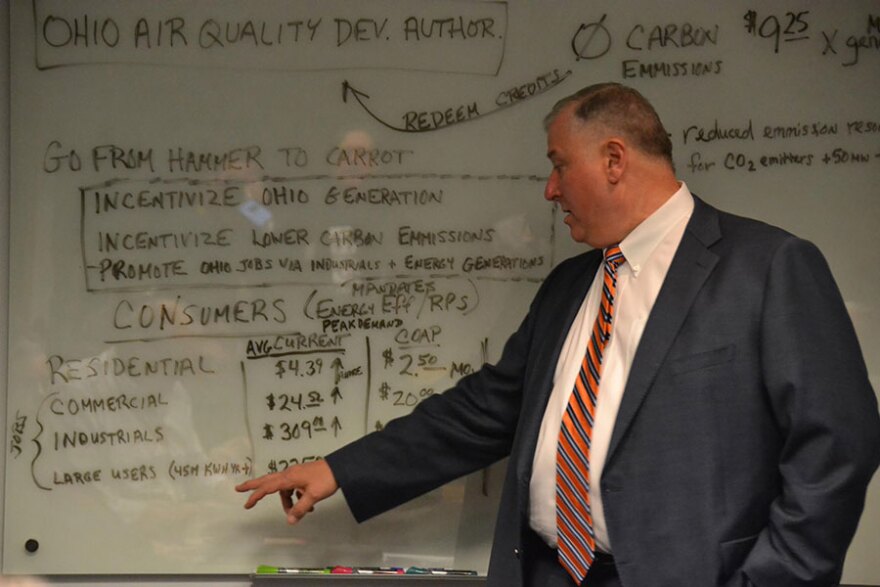Imprisoned former Ohio House Speaker Larry Householder pleaded not guilty Friday to 10 additional felony counts brought against him by the state.
Attorneys for Householder, 64, entered the plea in Cuyahoga County Common Pleas Court during an arraignment streamed from Elkton Federal Correctional Institution, where he’s serving 20 years for racketeering in the largest corruption case in state history.
Judge Brendan Sheehan granted a request from Householder's legal team to conduct the hearing remotely. Householder, wearing a prison uniform, did not speak during the hearing or look directly at the camera.
Once one of Ohio's most powerful politicians, Householder was convicted in March 2023 for his role in orchestrating a $60 million bribery scheme funded by Akron-based FirstEnergy Corp. to elect allies, secure power and then pass a $1 billion bailout of two of its affiliated nuclear plants and defend the bill from a repeal effort.
Listen: The Power Grab Podcast
Householder has appealed that conviction, arguing that federal prosecutors overstepped their authority and that the money was raised legally into a 501(c)(4) dark money group. Both FirstEnergy and the nonprofit group Generation Now have admitted guilt in the case, which is ongoing.
The state’s case charges two former FirstEnergy executives — ex-CEO Chuck Jones and Senior Vice President Michael Dowling — on a combined 22 counts, including engaging in a pattern of corrupt activity, bribery, telecommunications fraud and money laundering. Both have pleaded not guilty.
Another man the state charged, Sam Randazzo, former chair of the Public Utilities Commission of Ohio, pleaded not guilty before dying by suicide in April.
Charges brought by Republican Attorney General Dave Yost against Householder include one count of theft in office, two counts of aggravated theft, one count of telecommunications fraud, one count of money laundering, and five counts of tampering with records.
The state's indictment alleges that Householder misused campaign funds to pay for his criminal defense in his federal case and failed to disclose fiduciary relationships, creditors and gifts on required ethics filings, including in relation to the bailout bill, known as House Bill 6.


